Queens College Libraries Special Collections and Archives (SCA) collects unique personal papers, organizational records, and rare books and manuscripts in our priority collecting areas. SCA also works with the Queen Public Library to co-administer Queens Memory, a community archiving and oral history project.
Read our Collection Development Policy for more information.
Researchers may view the archives by appointment - email qc.archives@qc.cuny.edu for more information.
Researchers must abide by the Special Collections and Archives Policies and Safe Handling Guidelines.
Browse the collections on our finding aid database.
Researchers may request reproductions (digital files) of collections materials for private study, scholarship, and research. In making digital copies available, Queens College Special Collections and Archives does not thereby grant permission to reproduce or quote for publication. It is the responsibility of the user to obtain permission to publish from the owner of the copyright (the institution, the creator of the record, the author or his/her transferees, heirs, legatees, or executors).
Queens College Special Collections and Archives does not charge fees for digital files or photocopies. Requests for 20 pages or less are typically filled within ten business days. Larger requests are contingent on staff time and resources. Audio and video materials may have other requirements.
To request digital access to archival materials, fill out the Digital Access Form.
Answers to most copyright and intellectual property questions can be found in the Copyright Resources section of this guide. If you have further questions or concerns, please email qc.archives@qc.cuny.edu.
Queens College Special Collections and Archives will grant permission to publish collection items only when Queens College is the copyright holder. If Queens College is not the copyright holder, or if the collection item falls under the copyright regime of a country other than the United States, Queens College cannot grant permission simply as the physical owner of the material.
If your intended use of Queens College collection items falls within the fair use limitations on copyright specified in the U.S. copyright law (§ 107, Title 17, United States Code), you do not need our permission for that intended use. We cannot determine for you whether or not fair use applies to your intended use. Additionally, Queens College celebrates the public domain, and you do not need our permission, as physical holder of the collection material, to publish anything that is in the public domain in the United States.
To request permission for publication of items held by Queens College Special Collections and Archives, fill out the Publication Form.
Answers to most copyright and intellectual property questions can be found in the Copyright Resources section of this guide. If you have further questions or concerns, please email qc.archives@qc.cuny.edu.
Queens Memory Project interviewers and interviewees must fill out out the Terms and Conditions for Participants.
Queens Memory provides collecting resources on its website, including submission forms for recordings, digital photographs, scanned materials, and wild sounds. More participatory projects and programs are detailed on the Get Involved hub.
In describing and providing context for our collections, Queens College Special Collections and Archives (SCA) strives to use language that is culturally sensitive, historically accurate, and inclusive. We seek to disrupt systems of oppression through our terminology and framing of people and events. In order to achieve this goal, we commit to researching, using a critical lens, and consulting with communities represented in the materials.
We acknowledge that our collections may contain controversial and difficult content. We do not censor historical materials; however, we do commit to contextualizing the materials using ethical, inclusive, and historically accurate descriptions.
Best practices for inclusive and ethical description continue to evolve. The necessary work of using inclusive language, similar to the greater work of creating a more diverse, equal, and just society, is continuous and iterative. In archives, it requires the collaboration of all stakeholders--records creators, archivists, users, and other interested members of the community.
If you come across language in our finding aids or catalog records that you find to be inaccurate, harmful, or culturally insensitive, we want to know. Likewise, if you have suggestions for how to improve or expand our finding aids, we are open to your feedback.
Please send corrections, suggestions, or questions using our Feedback Form or by contacting us.
Credits
This statement was created and adopted by Queens College Special Collections and Archives staff (including full time workers, part-time workers, interns, and graduate fellows) in fall of 2020. We studied recent trends in archival description and consulted statements by Stanford Libraries, Princeton University Library, and Temple University Libraries. The line “We seek to disrupt systems of oppression through our terminology and framing of people and events” is borrowed directly from Stanford’s statement.
